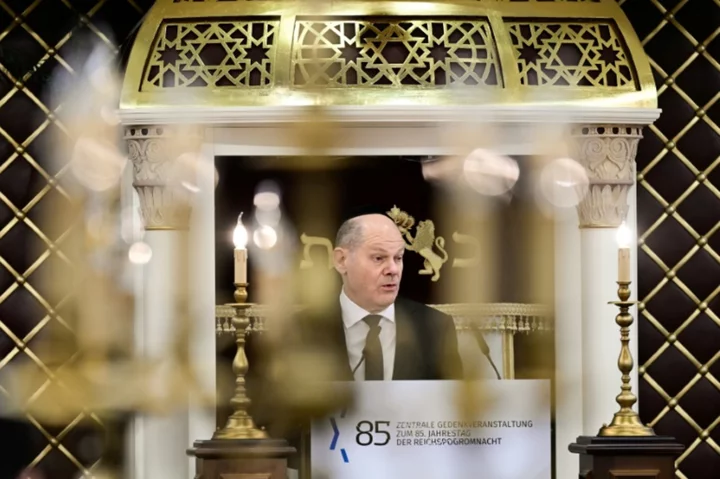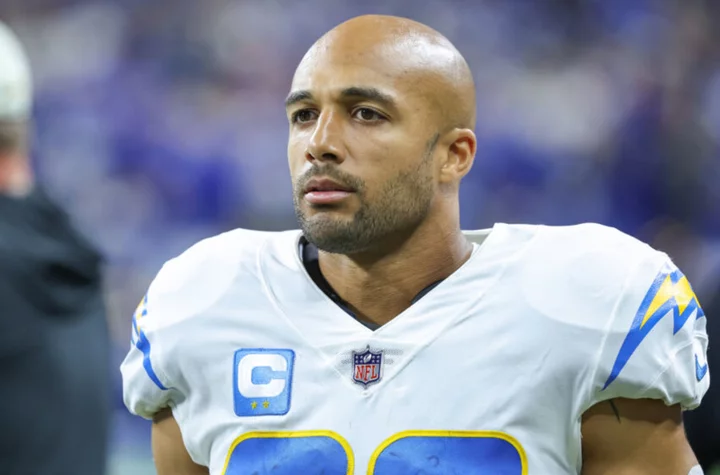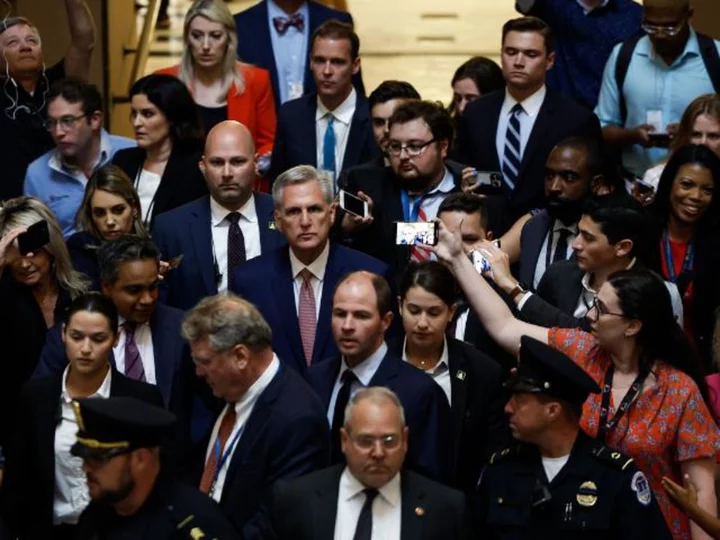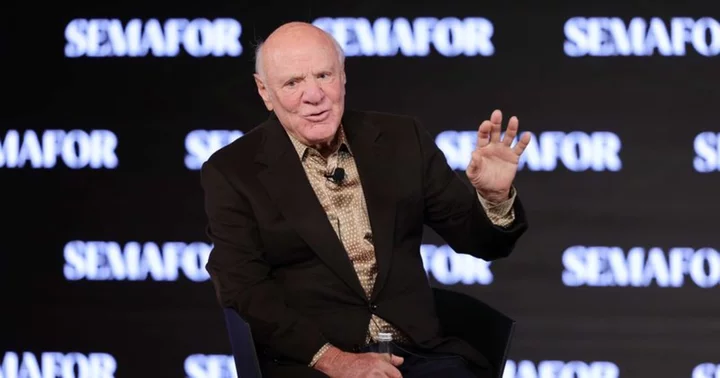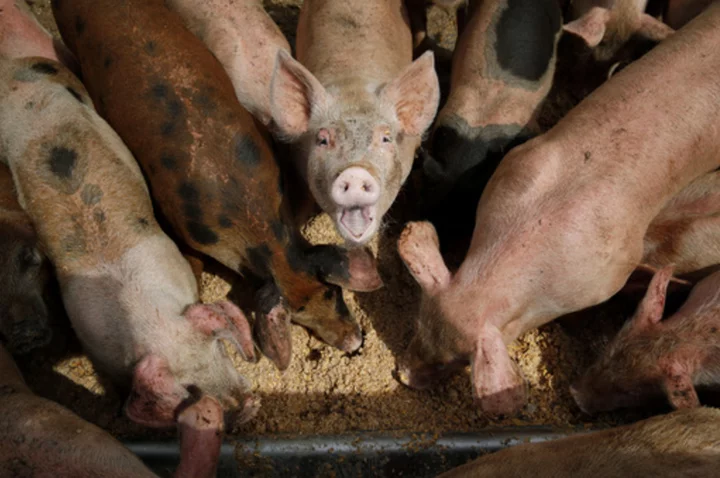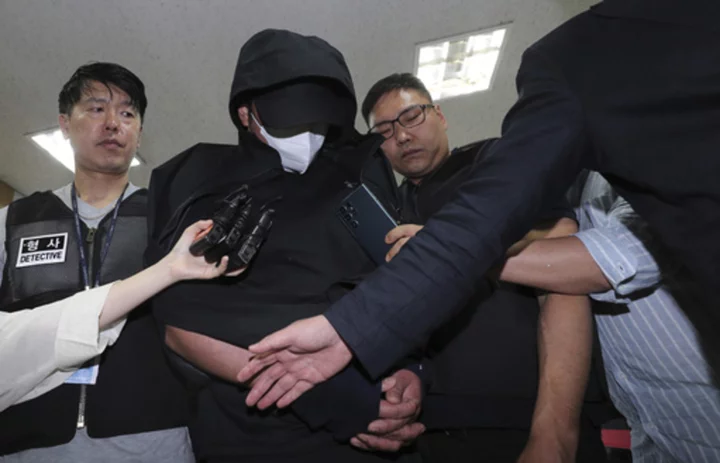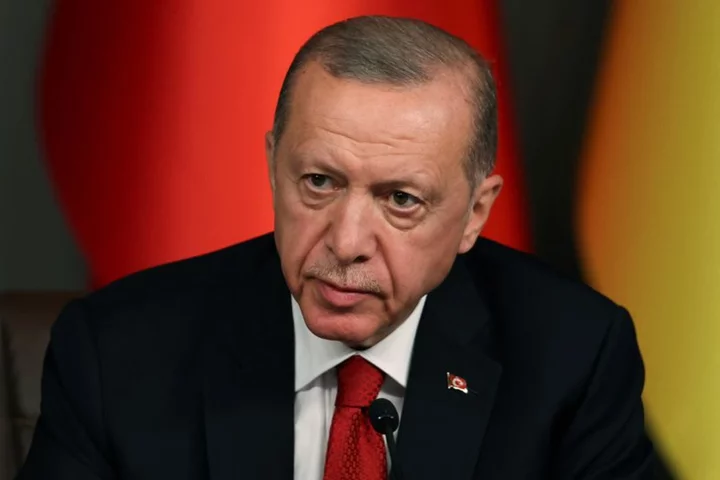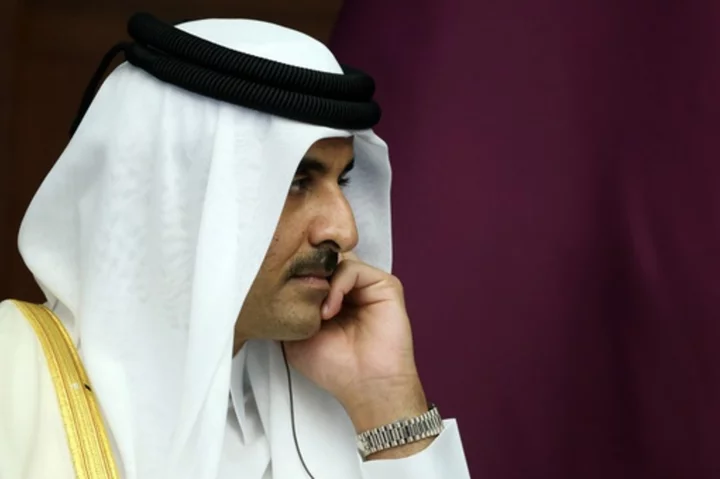Chancellor Olaf Scholz pledged Thursday to protect Germany's Jews against a "shameful" upsurge in anti-Semitism in the wake of the Israel-Hamas war, on the anniversary of the Nazi Kristallnacht pogrom that began the Holocaust.
Speaking in a Berlin synagogue that assailants targeted with two Molotov cocktails last month, Scholz said: "Essentially this is about keeping the promise given again and again in the decades since 1945...the promise 'never again'."
The German leader was addressing a ceremony on the 85th anniversary of the Night of Broken Glass or Kristallnacht, a spasm of orchestrated violence that ushered in the Nazi's slaughter of six million European Jews during World War II.
The chancellor said "never again" meant keeping the memory of Nazi atrocities alive, rejecting "terror propaganda" and ensuring that citizens and migrants alike respect Germany's "free democratic order which demands and guarantees diversity and respect".
Scholz said rising anti-Jewish sentiment in Germany, given the weight of its historical crimes, was "shameful" for the country.
"It outrages and shames me deeply," he said.
- 2,000 anti-Semitic incidents -
On November 9-10, 1938, Nazi thugs murdered at least 90 Jews, torched 1,400 synagogues across Germany and Austria and destroyed Jewish-owned shops and businesses.
The pretext for the coordinated action was the fatal shooting on November 7, 1938, of a German diplomat in Paris by a Polish Jewish student.
The Nazis rounded up and deported at least 30,000 Jews to concentration camps and made Jews pay "compensation" for the damage caused to property.
On October 7 this year, Hamas gunmen stormed across the border into Israel, killing 1,400 people, mostly civilians, in their homes, on the streets and at a rave party.
The deadliest attack since the founding of Israel led it to declare war on Hamas, with Israeli forces heavily bombarding Gaza and sending in ground troops with the aim of destroying the Islamist movement. The Hamas-run health ministry said more than 10,500 people, mostly civilians and many of them children, have been killed in the territory.
Some 2,000 incidents linked to the Israel-Hamas conflict have been reported so far in Germany, federal police said. Authorities have boosted security around Jewish institutions.
In October two men hurled Molotov cocktails at the Beth Zion synagogue in Berlin. No one was hurt, but the attack left many Jews in the capital rattled.
Pro-Palestinian rallies in Germany have in some cases gathered far-right and far-left extremists chanting anti-Israel and anti-Semitic slogans and sparked clashes with police.
Scholz, most of his cabinet and President Frank-Walter Steinmeier attended the ceremony at Beth Zion, which he noted had already been attacked and plundered on Kristallnacht.
They were joined by the president of the Central Council of Jews in Germany, Josef Schuster, 102-year-old Holocaust survivor Margot Friedlaender and family members of Israelis held hostage by Hamas.
- 'A time of threats' -
Schuster warned that extremists felt emboldened to take their hatred and Holocaust denial onto Germany's streets and social media, leaving the country's 200,000-strong Jewish community feeling threatened.
"There are parallels between the mentality of radical Islamists who want the extermination of Israel and the Jews, and those on the far right who despise our culture of Shoah remembrance."
However he said Germany's Jews were "self-assured" and standing together in "a time of threats".
"We will not be intimidated -- that is also one of the lessons of the historic pogrom experience from November 9, 1938."
Germany, still atoning for the Holocaust, has placed the protection of Israel at the heart of its foreign policy.
It has approved 10 times more in military gear exports to Israel so far this year, official data showed Wednesday, as Berlin said it was prioritising requests from the country after Hamas's deadly attack.
dlc/hmn/ach

